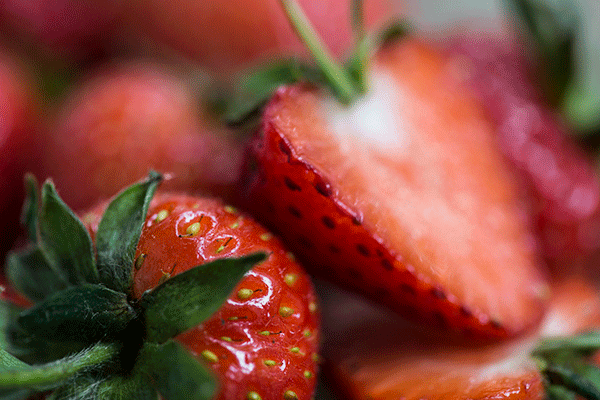Five cold, dry weeks finally came to an end last week, bringing relief to many nervous farmers and their crops. Too often summer droughts end with calamitous, soil-washing downpours; this time it was the gentle and persistent rain that Devon does so well. The soil sucked it down, so that within a day it had met the moisture from below. Earthworms came to the surface for the first time in weeks, and parched crops spread their leaves, opened their stomata (plant lungs) and pushed out new roots. Almost instantly our county turned a lusher shade of green.
The accompanying gale was less gentle on the flimsy polythene cloches that we had spent the last month erecting over our strawberries. Without resorting to fungicides, we try to keep the dreaded, fruit-rotting fungal pathogen Botrytis at bay by covering the crop from when it flowers onwards.
After a dry April, levels of infection and inoculating spores will be low – but we lost almost all the covers in the wind, and now have a long, frustrating job strengthening and reskinning the cloches before Botrytis spreads.
Twice I have sworn never to grow strawberries again, the last time being after the miserably wet summer of 2013, when two thirds of the crop was lost to Botrytis. This final roll of the dice was encouraged by Milan, the irrepressible and ceaselessly innovative Bulgarian who manages the steep, stony farm I bought five years ago. Perhaps it is insane to grow such a high-value crop on such challenging land – but, after breaking every rule of commercial fruit production, I have never seen such healthy plants, nor tasted such fine berries.
The wild strawberries I find growing in margins around the farm withstand drought, rain, weed competition and shade, and still produce Botrytis-free fruit; a far cry from the today’s mollycoddled commercial crops, grown almost exclusively under plastic, increasingly drip-fed their nutrients on soilless tabletops for ease of picking, and discarded after just one season.
We are heading in the opposite direction: growing without pesticides, in the soil, keeping crops for three years or more, and propagating from our own runners. Perhaps the plants are so healthy because our challenging conditions are closer to their natural environment. I picked my first strawberry yesterday; they should be in your boxes by the end of the month.













0 Comments